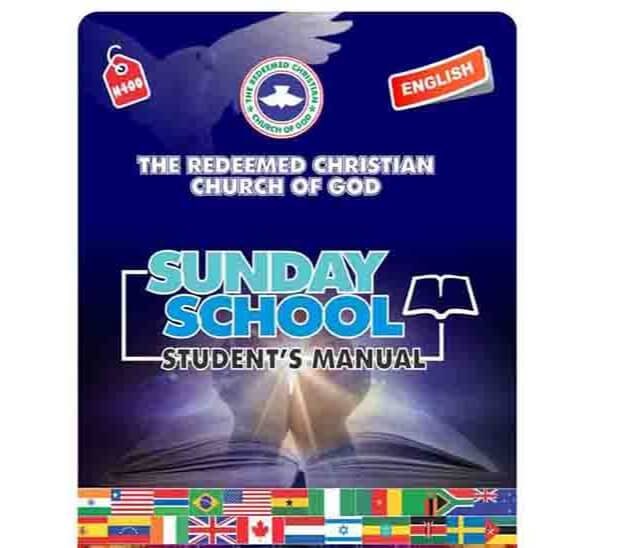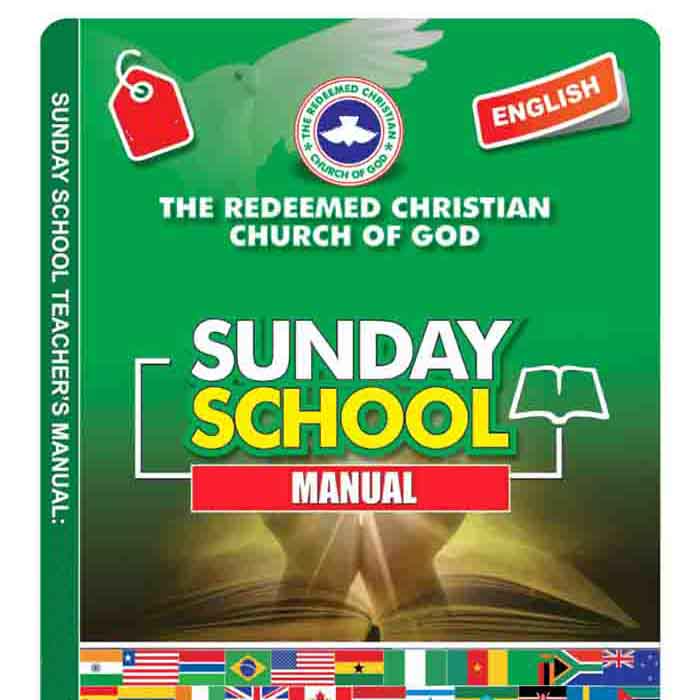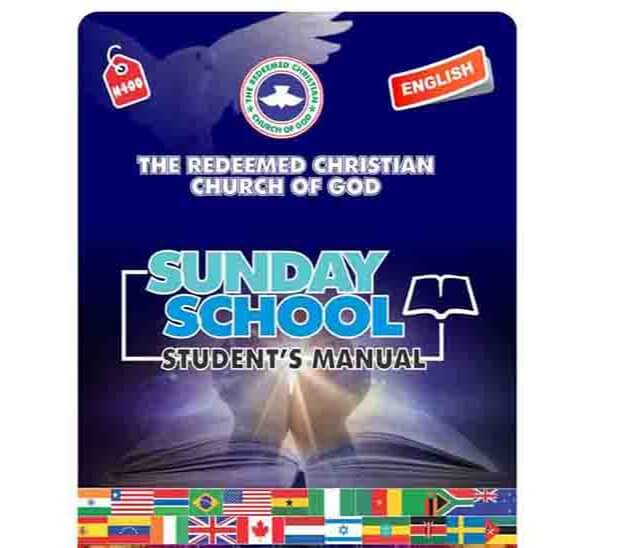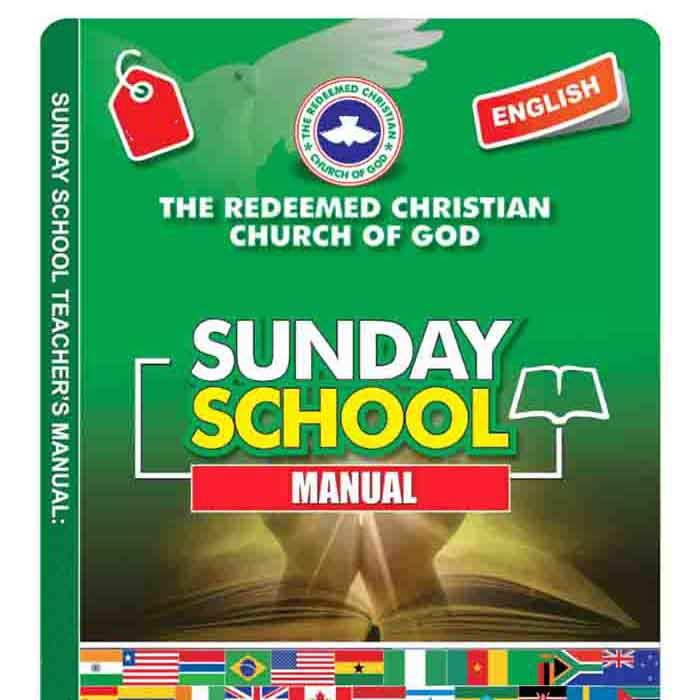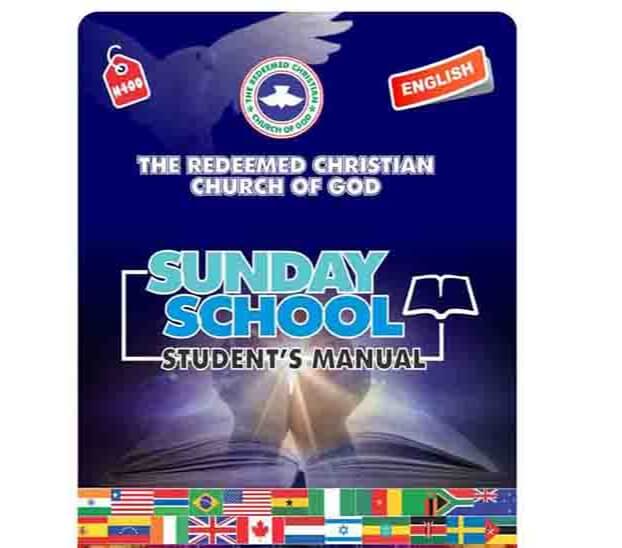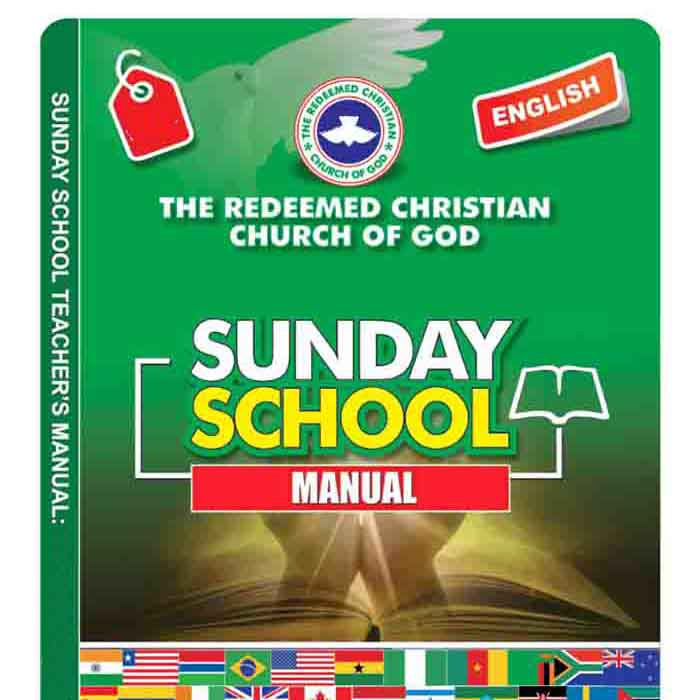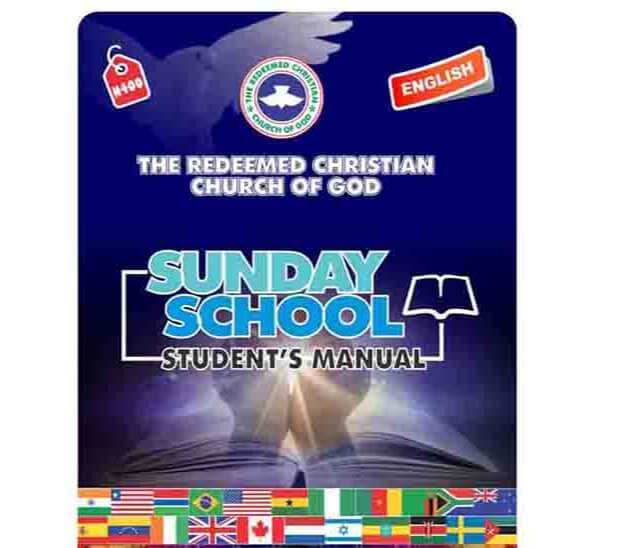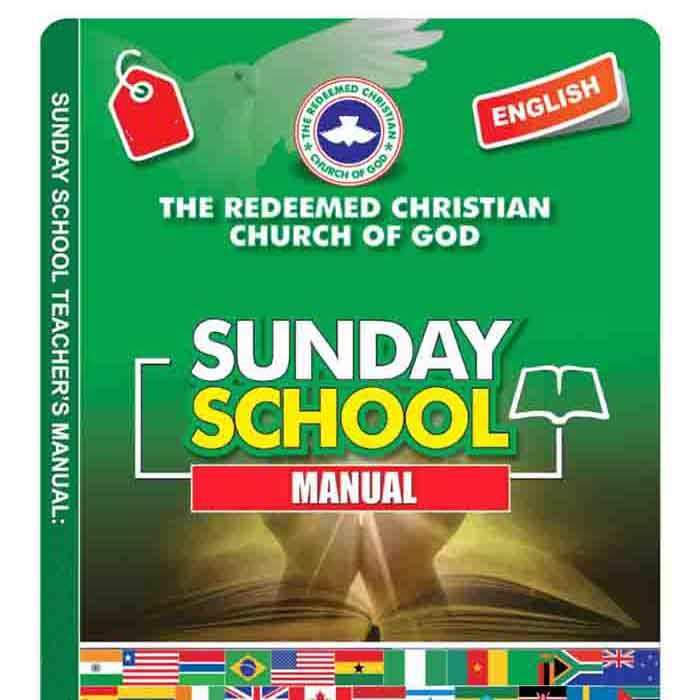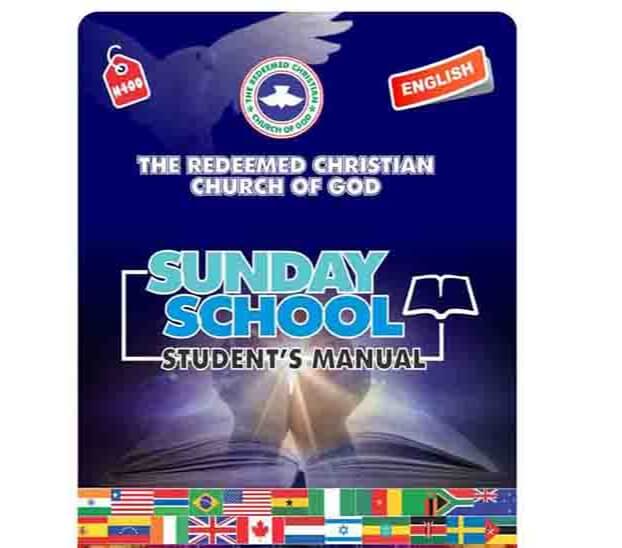This is RCCG Sunday School Teachers manual for the adult class.
Today’s Lesson 5 topic: MY ENEMY: SATAN
Date: 5 October 2025
Read:
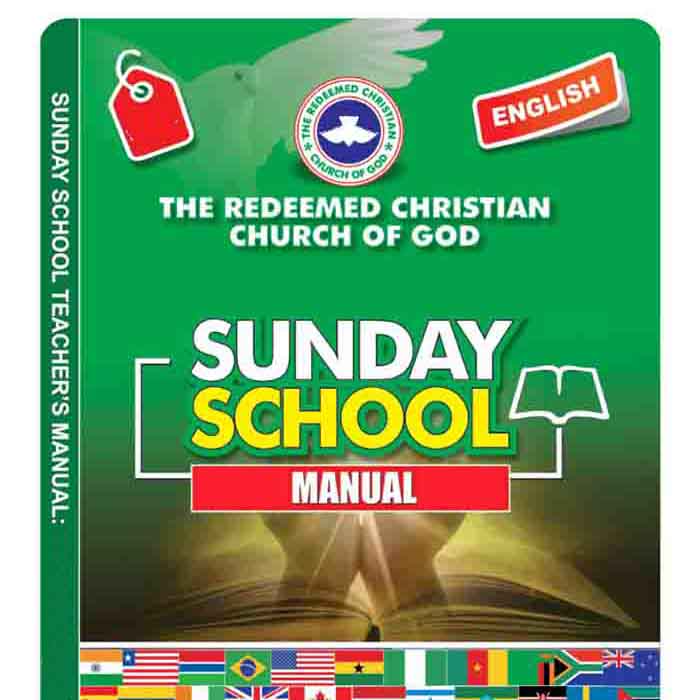
Note: Check RCCG SUNDAY SCHOOL HYMN LYRICS
RCCG SUNDAY SCHOOL TEACHERS MANUAL LESSON 5 (5 OCTOBER 2025)
TOPIC: MY ENEMY: SATAN
OPENING PRAYER:
Father, uncover every satanic device before me in Jesus’ mighty name.
PREVIOUS KNOWLEDGE:
The assistant teacher should review the lesson for the previous week.
BIBLE READING
BIBLE PASSAGE: Isaiah 14:12-17
12 How art thou fallen from heaven, O Lucifer, son of the morning! how art thou cut down to the ground, which didst weaken the nations!
13 For thou hast said in thine heart, I will ascend into heaven, I will exalt my throne above the stars of God: I will sit also upon the mount of the congregation, in the sides of the north:
14 I will ascend above the heights of the clouds; I will be like the most High.
15 Yet thou shalt be brought down to hell, to the sides of the pit.
16 They that see thee shall narrowly look upon thee, and consider thee, saying, Is this the man that made the earth to tremble, that did shake kingdoms;
17 That made the world as a wilderness, and destroyed the cities thereof; that opened not the house of his prisoners?
MEMORY VERSE:
“Therefore rejoice, ye heavens, and ye that dwell in them. Woe to the inhabiters of the earth and of the seal for the devil is come down unto you, having great wrath, because he knoweth that he hath but a short time.” Revelation 12:12.
INTRODUCTION
The “world” is a battleground and the Christian life is a warfare. As Christians, we have a terrible enemy-Satan; who wants to destroy us (John 10:10a). Paul called on Christians to be “good soldiers” of the Lord Jesus Christ (2 Timothy 2:3) and “to war a good warfare” (1 Timothy 1:18). Satan and his fallen angels are spirit-beings we cannot see, but they are real enemies of every child of God (Ephesians 6:11-12).
We need to study the enemy’s tactics to understand how to resist him.
TEACHER’S DIARY
LESSON AIM:
To teach the church, how to maintain perpetual victory over Satan.
TEACHING OBJECTIVES:
Through this study, students are expected to:
- Recognize Satan as a real enemy.
- Understand Satan’s strategies.
- Learn how to resist Satan and his agents.
TEACHING PLAN:
To achieve the above-stated objectives, the teacher should
- Allow the students to recite the memory verse, read the Bible passage, contribute to the discus-sion, and do class activities and assignments.
- Allow the Assistant Teacher to see to the wellbeing of the class, and mark attendance and assignment.
- Teach the lesson outline, summarise, conclude, evaluate the lesson and give assignments.
TEXT REVIEW: Isaiah 14:12-17.
A. This passage provides a poetic description of the fall of a once-great figure, commonly referred to as Lucifer (later known as Satan). Identify five errors he committed according to what he said using the word “I”
i. …
ii. …
iii. …
iv. …
v. …
B. In response to Lucifer’s error, God said
i. Yet thou shall ………V15.
ii. They that see thee … … V16.
C. Satan’s core task is to cause a chaotic situation by provoking destruction and keeping people in bondage.
TEACHING METHOD:
The Lecture Method.
TIME MANAGEMENT:
The teacher should apply the two-lesson outline teaching time.
LESSON OUTLINE 1: SATAN’S STRATEGY
- Satan’s terrible mission against man is to steal, kill and destroy (John 10:10a).
- He knows that he has been defeated and eternally condemned to the lake of fire, but he wants to take as many people as possible with him (Revelation 20:7-10; 2 Peter 2:4). He does this by using
- Lies: The Devil is called a liar and the father of all lies (John 8:44) who always attempts to counterfeit God’s principles and instructions through deception (Genesis 3:4-5; 13; Revelation 20:10).
- Fear: He uses fear to keep people in bondage and make them stagnant (1 Peter 5:8).
- Confusion: e.g. false doctrines (1 Timothy 4:1-3).
- Temptation and accusation: He tempts us to act on addictive urges and to yield to lust, im-pulses, selfishness and greed (Luke 4:13; 1Thes-salonians 3:5). He further accuses and condemns us for failing (Revelation 12:10).
- Contention. The Devil understands that disagreement is a potent weapon to subdue the limitless power in unity. (1 Corinthians 11:18; Acts 15:39).
- Discouragement/depression. Satan effectively uses this tool on believers (1 Kings 19:4).
- Affliction. Satan afflicts people with sickness to hinder their efficiency (Job 2:7). He also afflic when he gains access to a man’s life through un-confessed sin (Psalm 107:17).
CLASS ACTIVITY:
Share any attack Satan has ever launched against you.
LESSON OUTLINE 2: HOW TO RESIST
- When you are tempted, submit yourself to God and command the devil to leave (James 4:7).
- Use the scriptures to subdue him (Matthew 4:4-11)
- Locate the way out – escape route (1 Corinthians 10:13)
- When Satan lies to you, ask the Holy Spirit to reveal the truth and search the scriptures (Johr 8:32; 5:39a).
- When there is contention and conflict that can degenerate into disunity, seek to make peace immediately without delay (Hebrews 12:14; Romans 12:18).
- To overcome the strategy of discouragement/depression, engage yourself in serving others; work hard and avoid idleness, listen to godly music, recount your blessings and encourage yourself in the place of prayer (Ephesians 5:19; 1 Samuel 30:6).
- If you are sick, request prayer from Elders in the Church or mature believers and exercise your faith in God’s ability to heal (James 5:14-15).
CLASS ACTIVITY 2:
Have you used any methods above to defeat Satan’s strategy? Share with the class.
CONCLUSION: RCCG Sunday School Teachers Manual 5 October 2025
The word of God is a powerful tool given to believers to overcome Satan.
EVALUATION:
The students should give reason(s) Christians are called to be good soldiers of Christ as well as four ways to resist the devil.
CLOSING PRAYER:
Father, I frustrate any satanic agenda against me in the name of Jesus.
ASSIGNMENT: RCCG Sunday School Teachers Manual Lesson 5
State five (5) tips to resist the devil (2×5=10 Marks).
Follow RCCG Live on:


